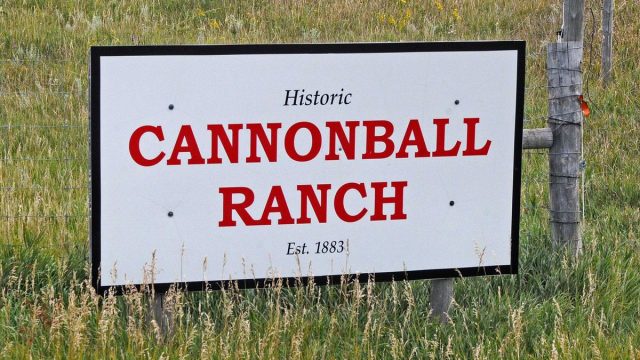Objections to Cannonball Ranch Sale Are Why North Dakota’s Corporate Farming Ban Needs to Be Scrapped

Last week rancher David Meyer, apparently fed up with protests against the Dakota Access Pipeline on his land, sold some 6,000 acres of the historic Cannonball Ranch to the pipeline company.
“It’s a beautiful ranch, but I just wanted out,” he told the folks at KXNews.
In response former Agriculture Commissioner Sarah Vogel said the sale violates North Dakota’s prohibition on corporate farming.
“That’s sketchy,” she said of the sale to the Bismarck Tribune.
Corporate purchases of land in North Dakota must, per state law, be reported to the Attorney General’s office for review within 30 days. If the AG’s office determines a violation has occurred they’ll open up a case in district court.
[mks_pullquote align=”right” width=”300″ size=”24″ bg_color=”#ffffff” txt_color=”#000000″]If a private land owner wants to sell his/her land, be it to a non-profit conservation group or a pipeline company, what business is it of the state’s?[/mks_pullquote]
That seems unlikely in this case. Corporations can own land in North Dakota, the just can’t farm or ranch. Since it’s unlikely Energy Transfer Partners is going to start grazing or growing wheat any time soon – many speculate, and I agree with the speculation, that this is a short-term shift in ownership to facilitate protecting the land from unlawful protesters – the land deal will likely stand despite Vogel’s protestations.
Vogel has been engaging in lawfare against oil and gas development in North Dakota for some time now, and not very successfully either. This latest salvo will probably be yet another failure for her. Once a player in state politics, it may be time to stop taking Vogel seriously.
But the larger point here is law which injects the state between willing seller/willing buyer land transactions.
If Meyer wants to sell his land to a pipeline company, so what? It’s his land. If the pipeline company, for whatever bizarre reason, decided they wanted to use the land for farming or ranching, again so what?
The same goes for land transactions to non-profits, by the way. In North Dakota – which is the only state in the union where this is so – property owners cannot sell their land to a nonprofit group without it being approved by the governor after a recommendation from the state’s Natural Areas Acquisition Advisory Committee.
But why should that be so? If a private land owner wants to sell his/her land, be it to a non-profit conservation group or a pipeline company, what business is it of the state’s?
These measures stem from North Dakota’s deeply agrarian roots. The corporate farming ban is about blocking competition from new business models. The restrictions on land sales to non-profits are intended to address fears over conservation groups or similar interests competing in the real estate markets.
The measures are also largely popular. A constitutional amendment put on the June ballot by the Legislature to ease the corporate farming ban slightly for swine and dairy operations was soundly rejected by voters. Though, to be fair, there was no real organized effort to promote the amendment to voters, while the proponents of the existing ban spent millions on a campaign.
The North Dakota Farm Bureau is challenging the corporate farming ban in court, and I hope they’re successful.
That the state can control land sales, and land use, in service of parochial economic interests is an affront to the notion of property rights.




